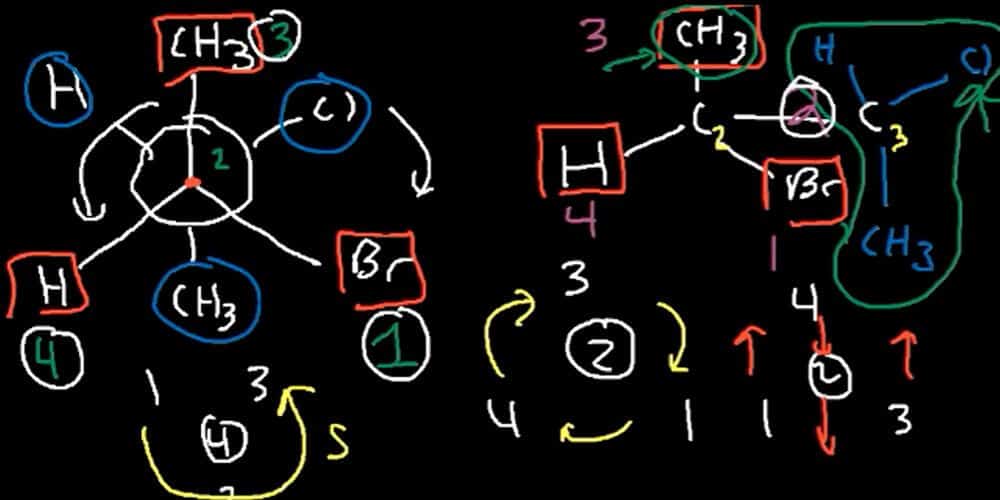Many students feel discouraged and nervous when it comes to Organic Chemistry.
Their past struggle with high school and college subjects can make them feel that it is the hardest thing to study and score well at.
But with the right knowledge about how to study for Organic Chemistry DAT, you can ace this section, getting the ideal score to earn you a spot in your desired dental school.
In this article, we shall explore the DAT Organic Chemistry section. We will discuss what’s on the exam and how to study in an organized way for success.
Quick Summary
- The Dental Admission Test consists of 4 sections, and Organic Chemistry is located in the Survey of Natural Sciences Section.
- Organic Chemistry accounts for 30% of the Survey of Natural Sciences section, and there are 30 questions on this subject.
- The specific Organic Chemistry content tested on the DAT tends to be much more manageable than most students think because it focuses on your conceptual understanding rather than seemingly endless lists of reactions and mechanisms to memorize.
- Your focus should be more on generalizations, patterns, and critical thinking rather than straight memorization.
- Understanding which Organic Chemistry concepts are tested on the DAT will help you develop solid study strategies.
What Is Organic Chemistry DAT?
Organic Chemistry is the study of molecules that have carbon. You study their molecular structures, different kinds of chemical reactions, etc.
The Organic Chemistry section of the DAT covers most of the topics you may have studied in your college Organic Chemistry classes. As per the American Dental Association, the following topics are tested on the DAT Organic Chemistry test:
- Mechanisms – addition, elimination, free radicals, and substitution mechanisms
- Nomenclature – major functional groups in molecules, IUPAC rules
- Chemical and Physical Properties of Molecules and their Organic Analysis- Intra & intermolecular forces, separation, stability, and solubility
- Stereochemistry
- Reactions of major fundamental groups and combination of reactions to synthesize compounds
- Acids and Bases – ranking acidity and basicity and study of acid-base chemistry
- Concept of aromatics and Bonding
Since the DAT is a multiple-choice test, you will be relieved that you won’t be asked to write long Organic Chemistry reactions and equations for answers to DAT.
How Is Organic Chemistry DAT Structured?
Format
The DAT comprises 4 sections, and Organic Chemistry appears under the Survey of the Natural Sciences section.
This section comprises 100 questions in total, whereby Organic Chemistry accounts for 30 questions which fall under the last part of the Survey of the Natural Sciences section.
The questions from 71-100 belong to the Organic Chemistry topics, and they come in the form of multiple-choice questions.
The questions might include reactions, equations, naming the products, or choosing the right answer regarding any topic. Each question has five answer choices from which you need to choose the correct answer.
Time Limit
The overall time to complete the 100-question Survey of Natural Sciences section is 90 minutes.
Ideally, you should spend around 20 minutes on the Biology section, 38 minutes on General Chemistry, and 30 minutes on the Organic Chemistry section.
Some Organic Chemistry questions may involve drawing out reactions or complex figures. Working on these questions would take significantly longer than the questions requiring you to name or identify molecules.
Nevertheless, average about 60 seconds for each question, so you can complete the subtest in about 30 minutes. You can then use the remaining 2 minutes to work on any questions you had marked earlier.
Regularly working on practice questions will help give you an idea of time management, so you don’t spend too much time on one section, leaving you with little time for the remaining subsections.
No. & Types Of Questions
The total number of questions asked on Organic Chemistry is 30. Questions from 71 to 100 will be based on the Organic Chemistry section.
No long questions are asked, and you are only required to choose the correct answers from the options presented.
The DAT Organic Chemistry section focuses more on logical thinking rather than memorization. 30%, which is only nine questions, are on individual reactions.
Only a small percentage of the questions consist of named reactions. Many questions are from broader topics like nomenclature, stereochemistry, physical properties, etc.
How To Study For Organic Chemistry DAT
Organic Chemistry is a vast subject with many structures, reactions, and classifications, which is why it can seem pretty tough to ace this section.
It is common to see students lose sleep over the pile of Organic Chemistry books they have to work their way through in preparation for the Dental Admissions Test.
With poor learning skills, Organic Chemistry can continue to be challenging, but this doesn’t necessarily have to be the case.
Here are a few tips that will help you ease your way through Organic Chemistry:
1. Understand The Core Concepts

Rather than memorizing your way through the various reactions, make an actual attempt to learn and genuinely understand the basic fundamentals. This will then make it much easier for you to apply them.
From redox reactions to genetics to stereochemistry, try and make sense of it all rather than opting for brute memorization. Learning the general mechanism will help you predict products that much easier.
2. Use Flow Charts
To make things easy, you can draw flowcharts on your whiteboard or on your study sheets, where you can take a look and visually remember the flow of different reaction mechanisms, etc.
Sectioning out the problems is the best way to be successful. The day before DAT, you can go through these flowcharts.
3. Flashcards
If you cannot find some decent flashcards, you may as well make your own, emphasizing the topics you are struggling in.
Whichever route you choose, make sure you practice non-stop with them, as flashcards can be an invaluable resource for learning definitions and the mechanism of reactions.
It will make you think about why and how the reaction works, therefore helping you solve reactions or mechanisms you have never seen before.
4. Watch Video Lessons
You can always go for some Organic Chemistry review videos to gain deeper insight into the areas where you are struggling.
Besides, it can be really helpful to hear someone else teach the material slightly differently than you may have encountered in your undergrad classes.
Another advantage here is that videos condense all the material into pleasant bite-sized portions that you can easily digest.
Youtube is a good place to find these. Additionally, certain paid sites allow you to view explanatory videos on a subscription basis.
While going through video lessons, try to focus on specific topics and reactions.
5. Work On Practice Problems
The best way to improve at Organic Chemistry and retain the information you are learning is to work on numerous practice tests and problems.
There are numerous Organic Chemistry question banks out there, including free practice tests that will work wonders for you.
Strategies To Ace The Organic Chemistry DAT Section
You need to follow certain tips and strategies to boost your DAT Organic Chemistry:
- Prioritize working on your weak areas
The areas that scare you the most are where you need to put in extra time. That’s how you can get DAT scores from 20 to 21 in the Organic Chemistry section.
- Make a detailed study schedule
Along with Organic Chemistry, you need to study the rest of the science subjects. So try to give equal time to all the subjects.
In the morning you can keep study sessions for each subject for 1 hour. If Organic Chemistry is your weakest section, try to give an hour more. In the evening, dedicate your time to practice questions.
- Revise often
Since Organic Chemistry is full of complicated reactions, try to revise whatever you study often.
The revision will keep your memory fresh, keep your concepts clear, and won’t burden you the night before the exam.
- Take good notes
You can make a binder to write notes and complicated reactions you struggle with the most. You can easily take it out and revise it without searching about it and wasting your time.
- Frequent practice
Take practice tests frequently, as they are essential to get a practical grasp of answering the exam questions.
They will give you an idea about the type of questions you may expect, help you work on your timing, and help you apply your theoretical understanding.
FAQs About Organic Chemistry DAT
How Much Organic Chemistry Is On The DAT?
There actually isn’t much Organic Chemistry covered on the DAT.
Expect to be tested on general concepts and a select few reactions and mechanisms. The key challenge here is that to obtain a good score, you really need to know your core concepts and basic fundamentals. There is no way around that.
Is Organic Chemistry DAT Hard To Study?
Yes, Organic Chemistry DAT is hard to study.
Students often struggle with the volume of the curriculum and find it challenging to understand seemingly complicated topics and differentiate between similar reactions. But there are ways to improve your efficiency in studying this subject.
The core idea is that you need to have is proper logic behind all reaction mechanisms and a strong base in chemistry.
It might look hard, but it is very easy and beneficial for the students in the long run. Also, it would be best to have lots of practice to make your logic clear and develop strong foundational knowledge that will help you solve the problems quickly and accurately.
How Many Organic Chemistry DAT Questions Are There?
There are 30 Organic Chemistry DAT questions.
Questions 71 to 100 on the Survey of Natural Sciences DAT section test are based on Organic Chemistry.
9 questions are on individual reactions, whereas the greater majority of questions come from broader topics like nomenclature, stereochemistry, major fundamental groups, etc.



